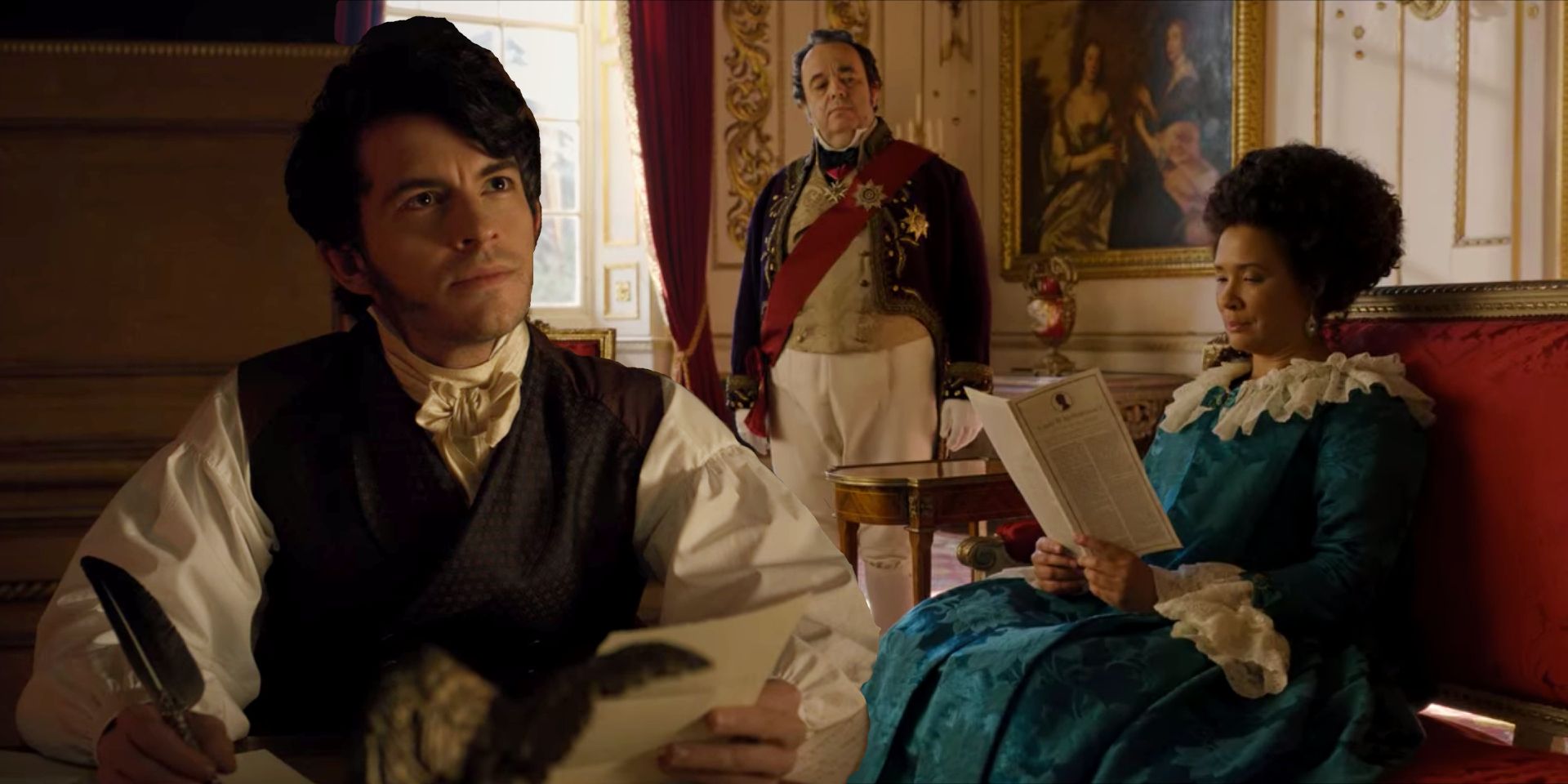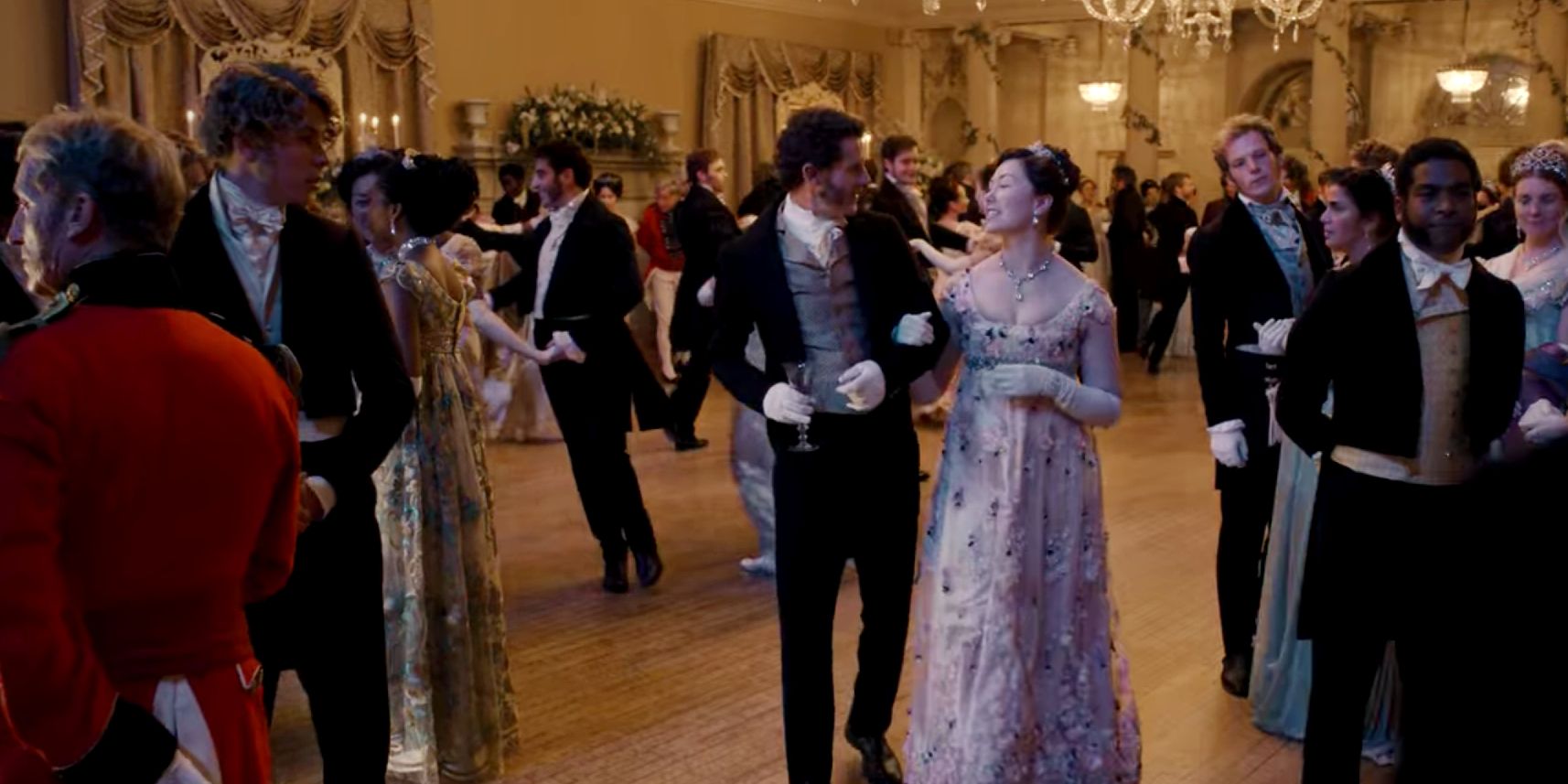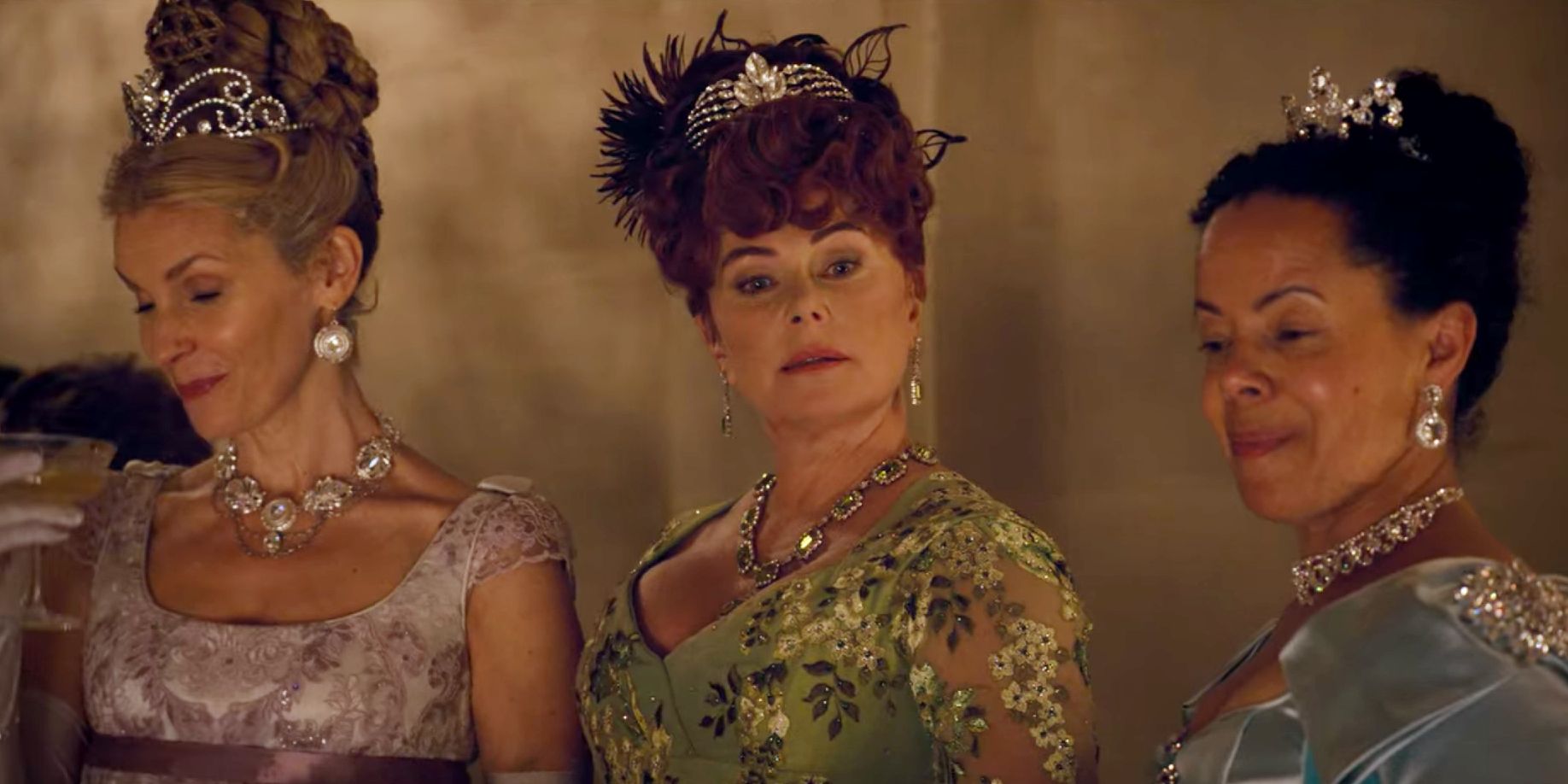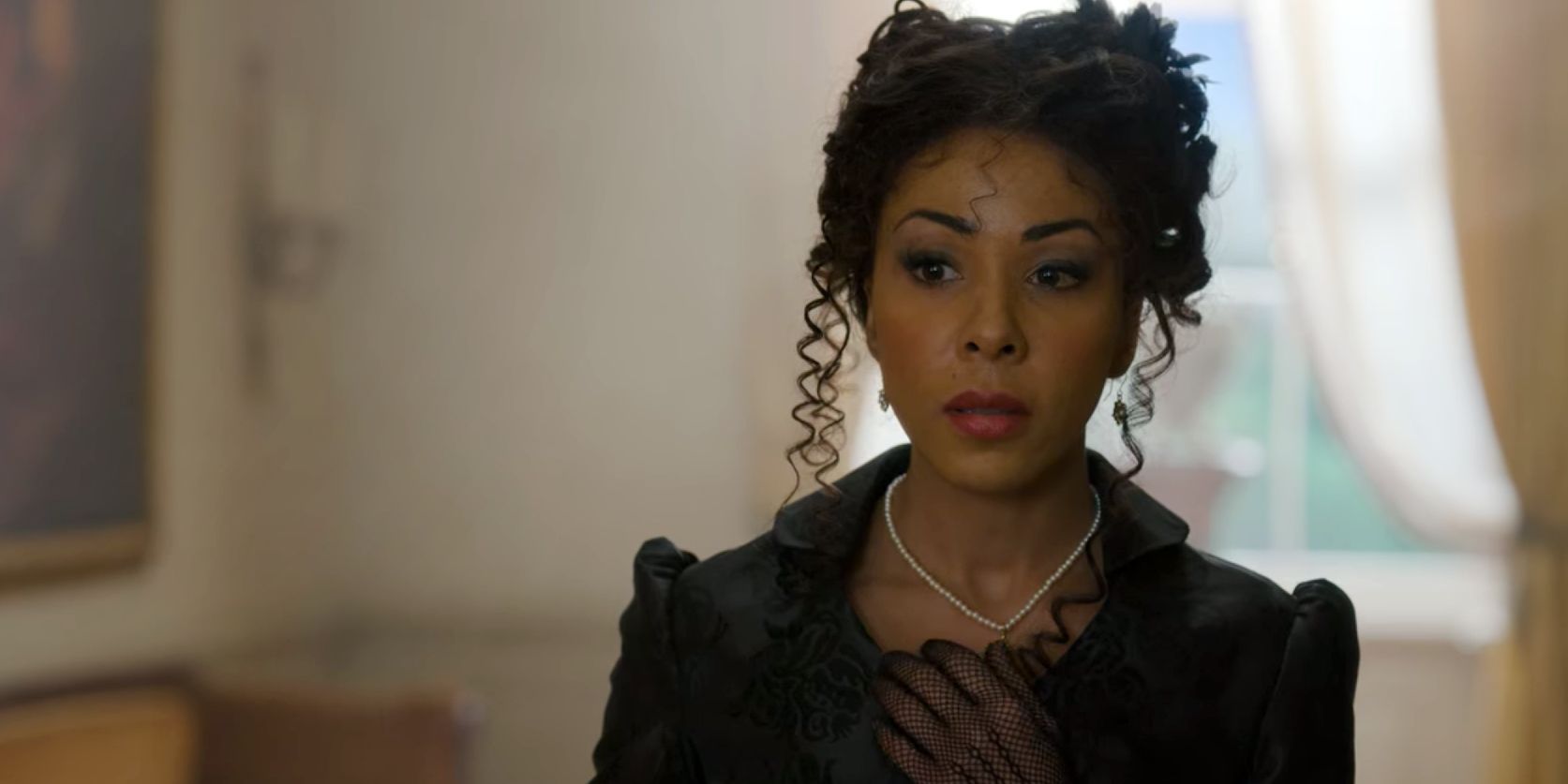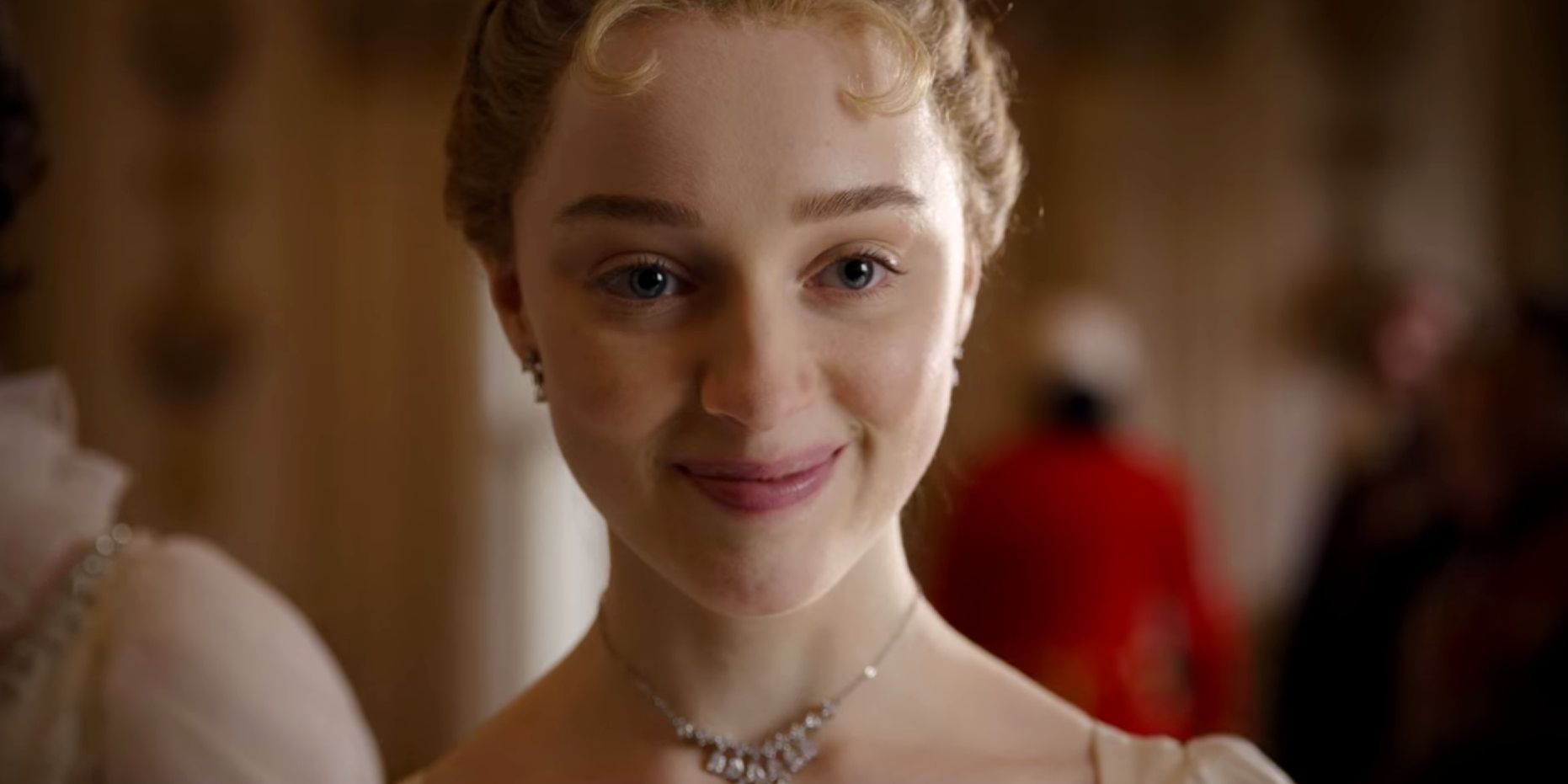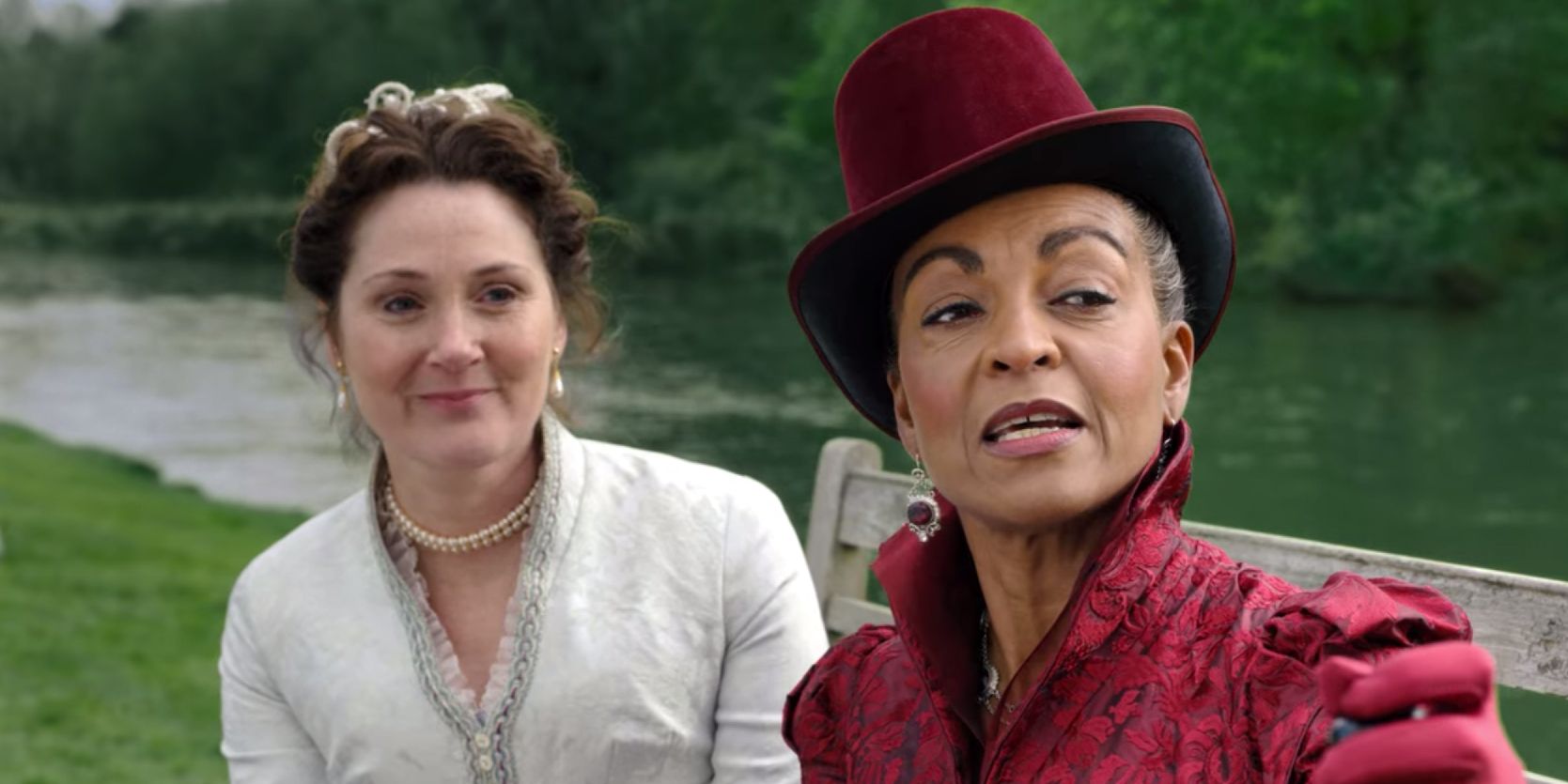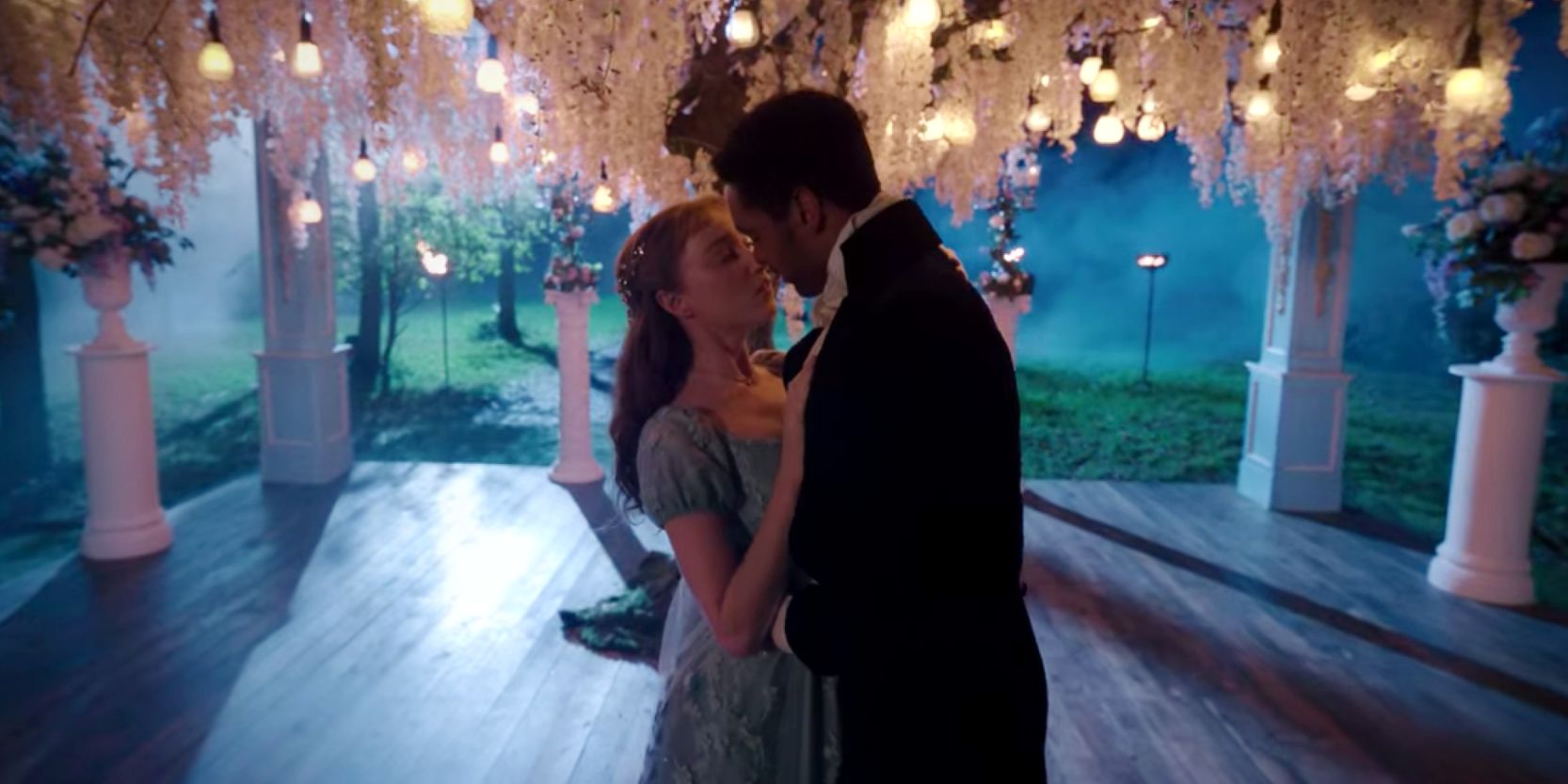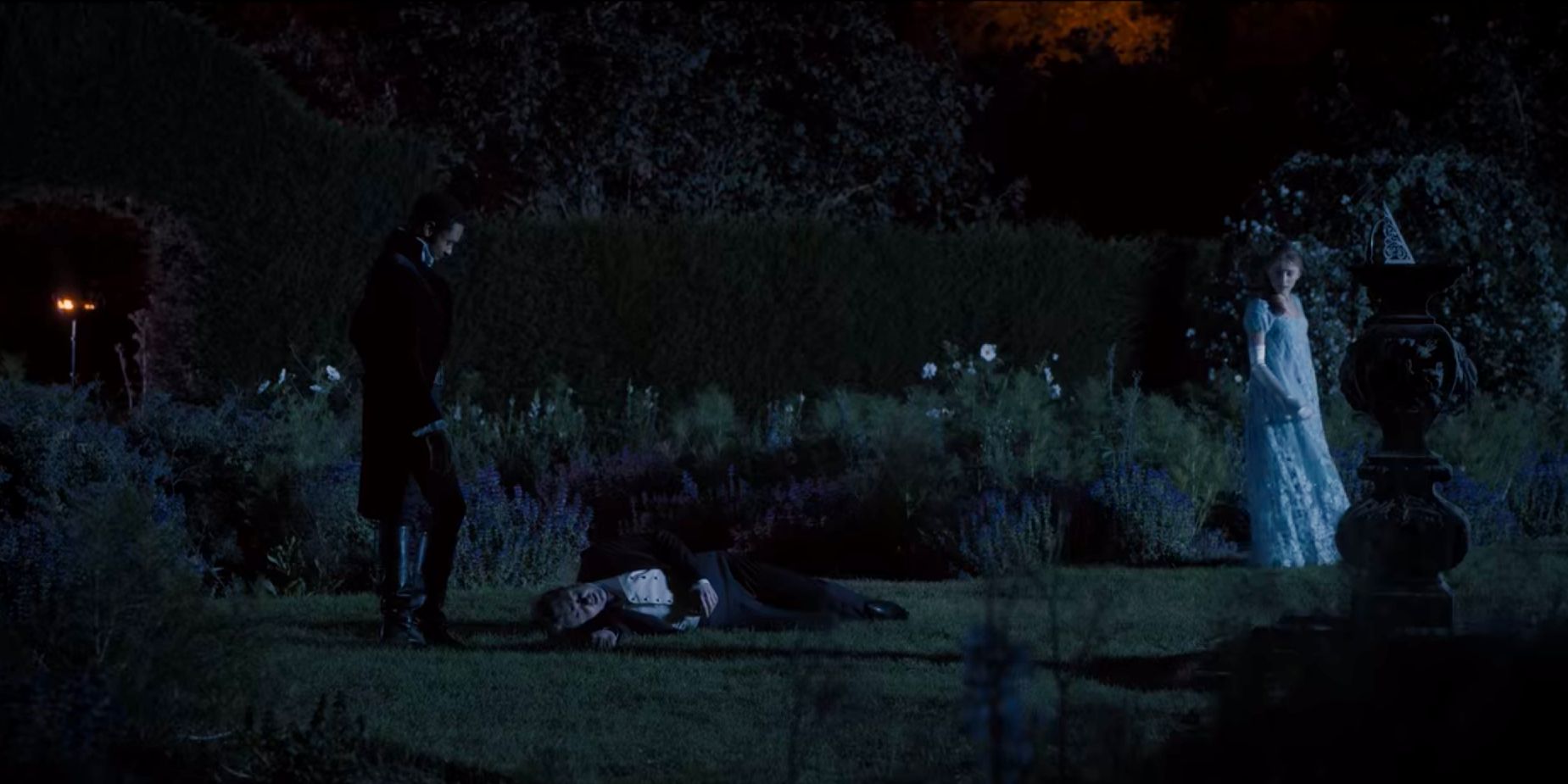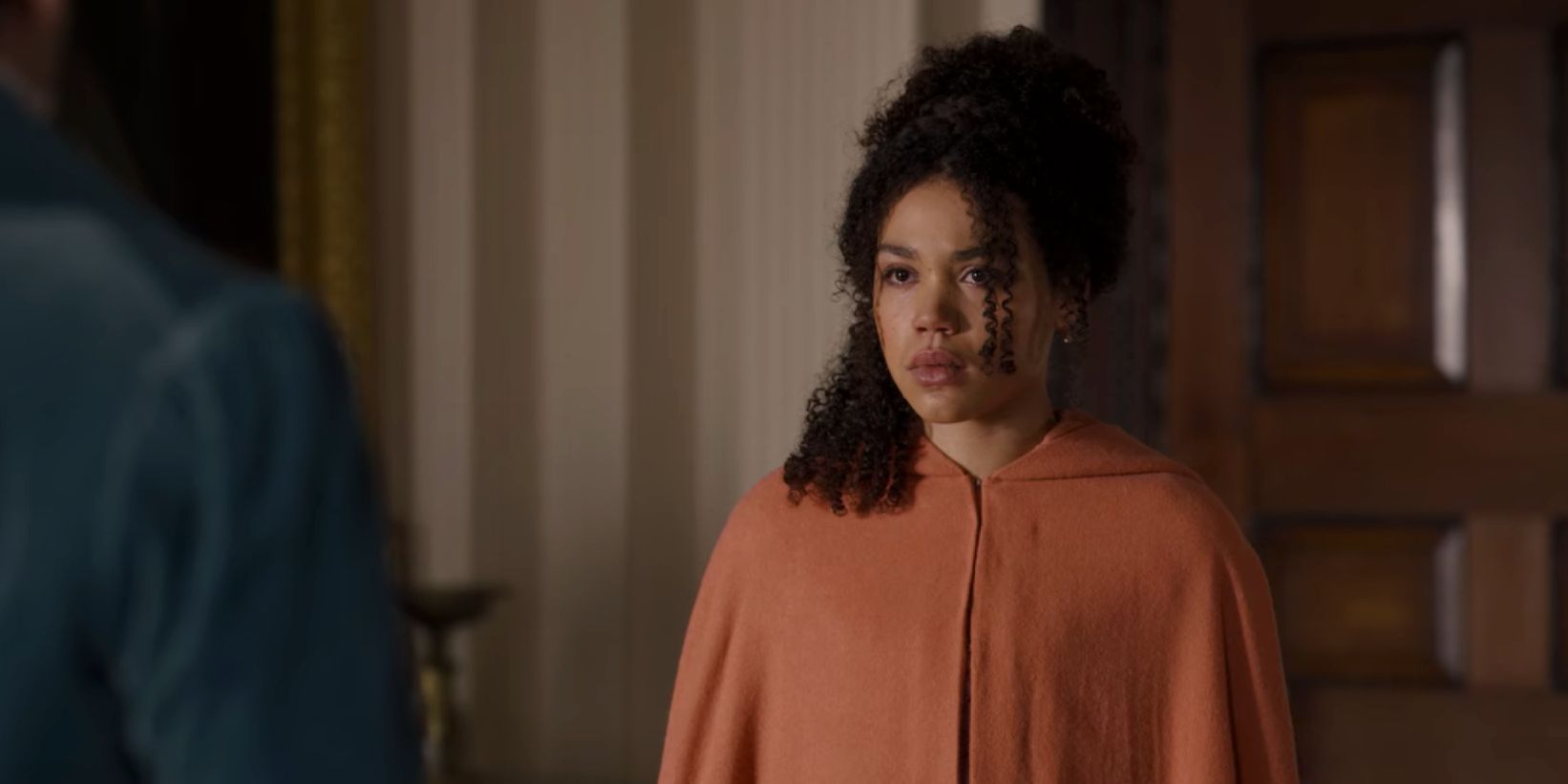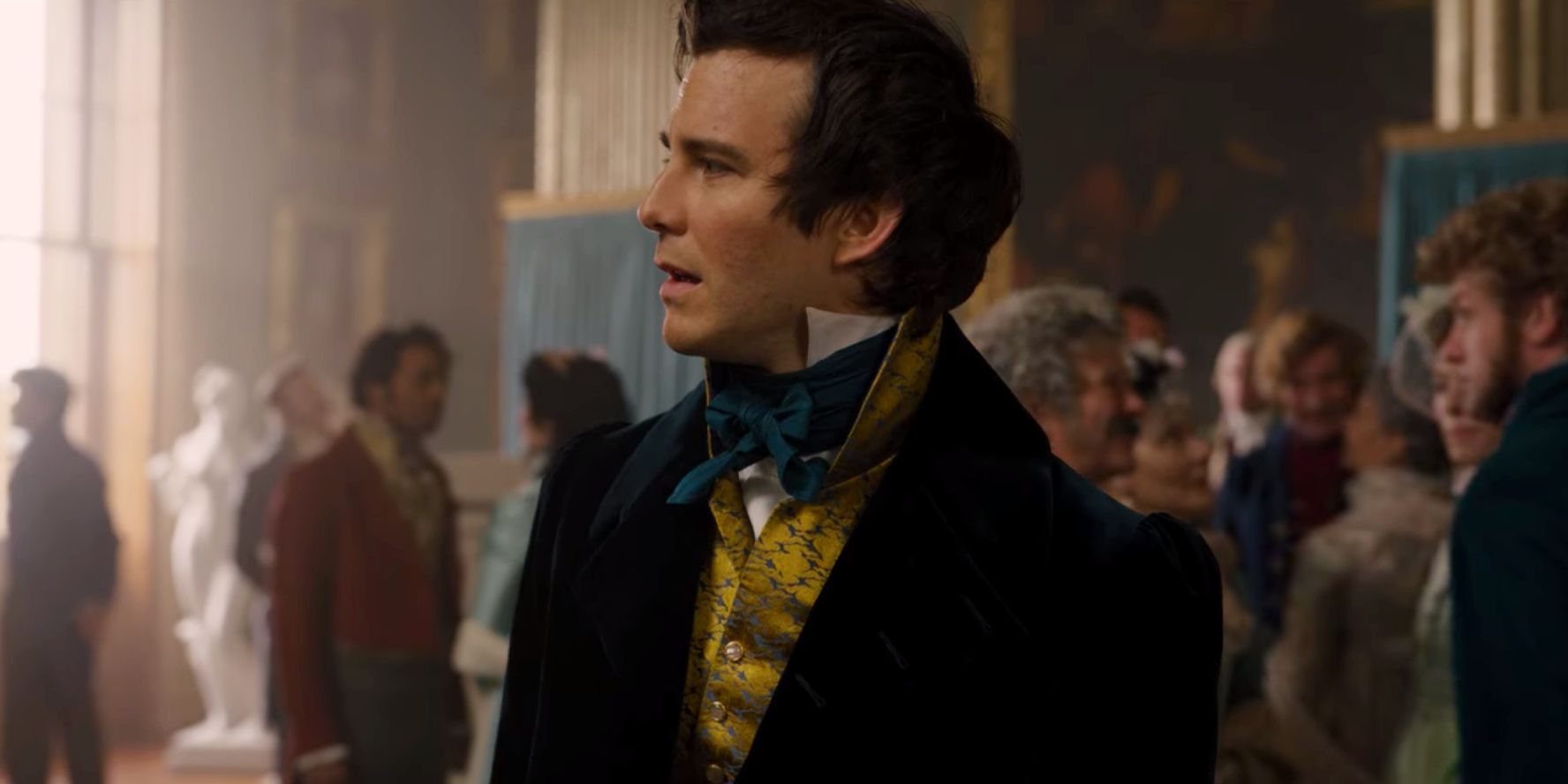Bridgerton is a wildly popular Netflix series set in regency-era London; here are the keywords and phrases you need to know to keep up with the show’s colorful characters. Bridgerton, based on the novel series of the same name by Julia Quinn, is the latest release from Shondaland. Season 1 of the show focuses primarily on the events of the first book, The Duke and I. Starring Phoebe Dynevor and Regé-Jean Page as central love interests Daphne Bridgerton and Simon Basset, the Duke of Hastings, the show has garnered significant attention and a place on Netflix’s trending top ten list.
Set in 1813, Bridgerton follows the lives of young debutante Daphne Bridgerton and her family and friends as they try to navigate the many trials and tribulations of British high society. Daphne longs to marry for love, and finds herself at the center of a mutually beneficial scheme with the aloof Simon Basset, Duke of Hastings. Meanwhile, a mysterious author named Lady Whistledown stirs up drama with her regularly published scandal papers, from which no one, not even the queen herself, is safe. Bridgerton’s characters search desperately for love, for a sense of self, for purpose, and for acceptance – all universal themes that viewers can relate to across more than two centuries.
Despite Bridgerton’s many covers of modern songs and widespread popularity, it includes several words and phrases that are quite out of date by today’s standards. As a period piece, the show reflects not only the culture and fashion of the regency era, but the language as well. Though most of what the characters say is easily understandable, some words and phrases appear that may be quite confounding. Below is a guide to help shed light on the unusual terms that appear when watching Bridgerton.
The Ton
"The Ton" - British high society. Characters in Bridgerton often refer to “the ton,” and though this turn of phrase may sound like an adaptation of “the town,” it actually refers generally to all of high society. The phrase comes from the French phrase “le bon ton,” meaning “etiquette” or “good manners.” It is clear that society in Bridgerton places great importance on propriety and manners, and “the ton” is a good example of how that belief influences the culture.
Rake
"Rake" - A man who engages in what are considered to be immoral behaviors, most notably womanizing, but also usually drinking and gambling. A rake often wastes his money on these hedonistic pursuits. Many characters in Bridgerton call Simon Basset a rake, due to his reputation for drinking and having a Don Juan-esque personality. When Violet Bridgerton defends Simon as a good match for Daphne, she says that she believes “reformed rakes” can make excellent husbands, implying that the late Lord Bridgerton may have once been a rake himself.
High In The Instep
"High in the Instep" - Someone who is conceited or arrogant. The phrase likely came from the fact that the nobility was thought to have higher foot arches (aka, the instep) than the working class, who might have had flatter feet as a result of poorly made shoes and a lot of time spent doing hard labor on their feet. The insulting phrase implies that a person thinks more highly of themselves than they should.
Modiste
"Modiste" - Someone who makes fashionable women’s clothing, especially dresses or hats. A modiste is essentially a dressmaker, creating custom clothing for their patrons. Bridgerton’s modiste is, of course, Genevieve Delacroix, a friend of Siena Rosso’s and, later, Benedict Bridgerton. Many ladies in the series visit Genevieve, whether to commission new dresses, alter old ones (such as the lowering of Eloise’s hems), or purchase other fashionable materials or products.
Coming Out/Debuting
The young women of Bridgerton often talk about “coming out,” “being out,” or “debuting,” which refers to the tradition of formally entering the marriage market. Once a girl has “debuted” or “come out,” she is able to search for a husband much like Daphne or Cressida Cowper, or many of the other young women throughout Bridgerton.
The Social Season
“The social season” refers to a few months out of the year that London society often devoted to events and balls at which young members of the ton could mingle and search for a match. The exact time frame of the social season is up for debate, but the most popular months were April through August.
The Marital Act
"The marital act" - A euphemism for sex. One of the topics Bridgerton confronts is the incredible taboo placed on discussions of sexuality. Many young women in the series know little or nothing about sex or pregnancy. Though Eloise and Penelope’s determination to learn where babies come from is charming and played for laughs, Daphne’s journey displays just how harmful that lack of knowledge could actually be. Women had limited access to education and had to rely solely on family members and friends to educate them about healthy and safe sexual practices.
A Woman’s Honor or Virtue
"A Woman's Honor or Virtue" - A euphemism for virginity. Because having sex before marriage was considered immoral during the regency era, a lot of importance was placed on virginity. It was a double standard because it never applied to men, which fans of Bridgerton will recognize. Though the mere implication that Daphne may have had a sexual encounter with a man is enough to ruin her prospects for marriage, whereas Simon is a known womanizer and suffers no societal consequences for it because he is a man.
Being Ruined
The idea of "being ruined" also stems from the concept of a woman’s virtue, and generally indicates that a woman has had sex with someone outside of marriage. This would invite great scandal, and explains why when news of Marina’s pregnancy comes out, she is considered to be “ruined.” The severity of ruination was, in fact, so great that simply being associated with a ruined woman prove troublesome for a woman whose so-called virtue was intact.
Skied
A regency-era tradition of covering walls with paintings from floor to ceiling resulted in some being “skied,” or hung up so high on the wall that they could not be easily seen. Fans may remember this phrase from Benedict Bridgerton’s first encounter with Sir Henry Granville, when he unwittingly insults the artist's work, suggesting it should have been “skied” along with the other undesirable pieces.

